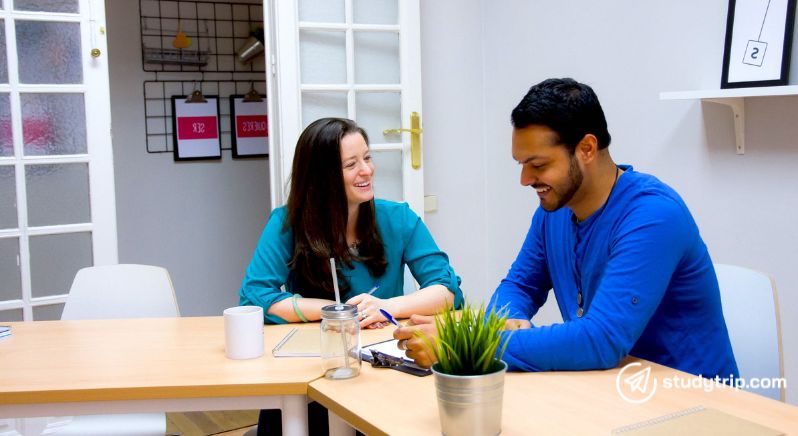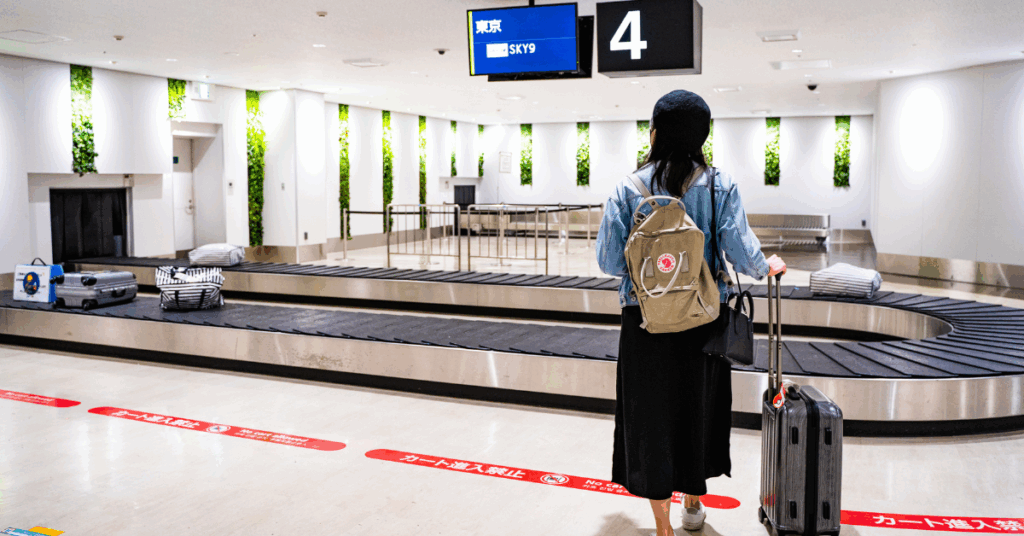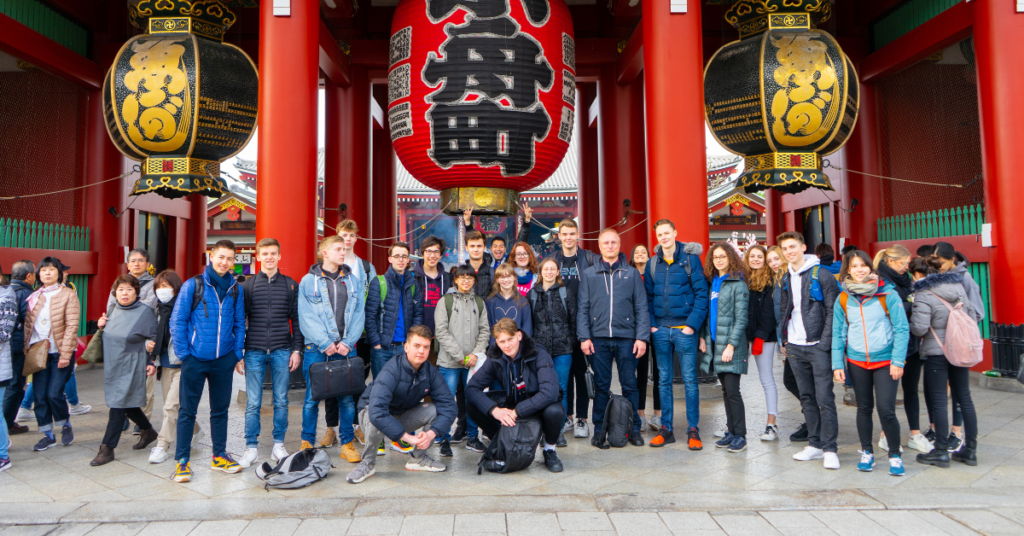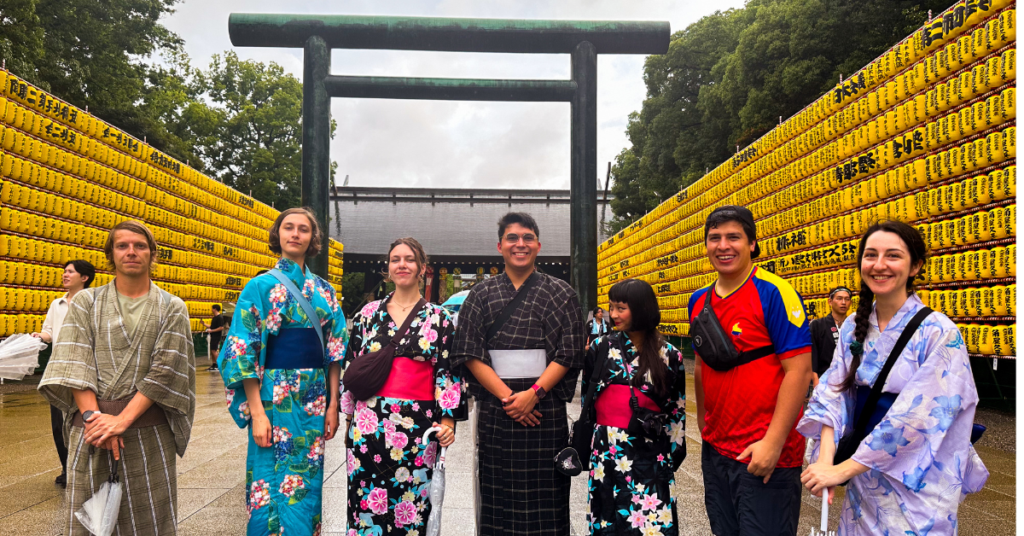Study abroad trips can be life-changing, but only if they’re well-organized. Avoiding the most common study abroad mistakes can help you deliver a smooth, enriching, and memorable experience for your students. Whether it’s a high school immersion trip, a university program, or an adult learning adventure, good planning ensures great results.
The global educational tourism market (including language and cultural learning programs) is projected to grow at a 13% compound annual growth rate through 2030, nearly doubling in value from $365.9 billion in 2022 to about $974.7 billion by 2030.
For those in the education industry, this means planning meaningful travel experiences for your groups in order to keep up with the global trend and ensure your students are staying ahead of the curve. Planning international travel can be daunting, which is why we’ve put together a list of our top 5 study abroad mistakes to avoid when designing your program.
With over 15 years of experience helping groups like yours travel, our staff has learned firsthand how to ensure a smooth and enriching experience for your group.

Mistake 1: Planning Too Many Activities Into One Day
Why it’s tempting
For many participants, this may be their first time traveling abroad or their first time in a new country. There’s so much you want them to experience and learn. Of course, you feel a responsibility to help participants get their money’s worth, feel satisfied with their experience, and learn about the culture and language.
The downside
While we want to help ensure your group gets the most out of their time abroad, we’ve seen that one of the most common study abroad mistakes is packing the schedule too tight. If you pack too many things in there’s a chance you will be too rushed or tired to enjoy your trip. Regardless of age, an overloaded schedule with no downtime can lead to fatigue, low engagement, logistical issues, and no time for reflection.
Pro-Tip
To avoid travel burnout, build in free time and buffer time between activities. During free time students have the opportunity to practice the language in context when asking for directions, ordering at a restaurant or conversing with locals. Think quality over quantity when selecting experiences. Rather than checking off every instagrammable spot in Korea, why not visit just a few and then make time for a traditional Hanbok-wearing experience at Gyeongbokgung Palace?
Language retention is higher when students have opportunities to use the language. Instead of visiting another museum, consider a hands-on Sicilian cooking class where they can interact, speak, and learn in context.
Mistake 2: Planning Too Late
Why it’s a problem
There are many considerations when planning a study abroad program, especially for larger groups. Planning too late can mean limited availability, higher costs, and potential documentation issues such as passport and visa delays. This common study abroad mistake creates stress for both you and your group and can start the trip off on the wrong foot.
Timeline recommendation
We recommend planning your study abroad program 9–12 months in advance to avoid this common study abroad mistake. This gives you time to design your ideal itinerary, secure the best pricing on accommodations, flights, and activities, and gather all participant documentation well before departure.
Pro-Tip
Having a personal coordinator to assist with planning helps keep everything on track. At StudyTrip.com, we’re here to ensure your timeline stays on schedule. You’re not alone, and our expertise allows for better coordination with host schools, homestays, and local partners. We already have a checklist, curated through years of experience, so you don’t have to worry about it.

Mistake 3: Ignoring Student Language Levels and Goals
Why it’s a problem
One-size-fits-all programs aren’t the best way to increase student motivation. If you’ve ever been in a class that felt too easy or too difficult, you know how frustrating that can be. And if your students are especially interested in Italian art, but you plan a course focused on food, they may feel less connected to the culture and less inspired to study the language.
Pro – Tip
To avoid this study abroad mistake, make sure lesson content is aligned with your students’ language levels and learning objectives. The easiest way to do this is by working with providers who customize course content and offer level-based lesson placement.
At StudyTrip.com, your coordinator will work with you to understand your students’ interests, goals, and language abilities in order to create a balanced and engaging program.
For example, we designed a custom trip for a group of high school students just beginning their Japanese studies but passionate about Otaku Culture. Their itinerary includes beginner-friendly language lessons in the mornings and fun, themed activities in the afternoons like manga drawing and kawaii bento making to keep them motivated and excited about Japan.
Mistake 4: Poor Communication With Parents and Students
Consequences
Poor communication with parents and students is a common mistake that can lead to misunderstandings, unmet expectations, and unnecessary stress for everyone involved. For example, setting expectations about the accommodation is extremely important. Many groups elect to stay in a budget hotel in order to keep costs down, but if students or parents are expecting a 5 star experience they may be let down. Setting the expectation up front about what to expect, means on the ground, you can avoid any complaints or issues.
Pro-Tip
Establish a clear communication plan that includes orientation sessions, detailed itineraries, and Q&A materials. When discussed early, many common issues can be avoided, including:
- What’s included vs. what participants need to cover
- School and accommodation locations, and how to travel between them
- Accommodation expectations (amenities, meals, type and quality)
- Dietary restrictions and how they can be accommodated vs. what students should manage on their own
- Confirming any health concerns that may impact a student during the program
- Medications and related documentation
Mistake 5: Choosing the Wrong Program Partner
Why it matters
Different providers offer different levels of support, flexibility, or language integration and it’s important to find one that aligns with your goals and needs.
Pro – Tip
While each group’s needs differ, some qualities you might consider when selecting a partner include whether they offer on-the-ground support, what types of local language school connections they have, do they offer customized and flexible planning, and do they have experience working with student groups.
See what one of our partners has to say:
“Our experience was fantastic, the GGN team supported our requests and gave valuable recommendations during the planning stage. During our time in Tokyo the team made sure everything went smoothly, all participants were well cared for and enabled to have a thoroughly enjoyable and authentic experience learning.”
-Bec Stafford, Senior Student Experience Coordinator, Curtin University
Avoiding Study Abroad Mistakes – Final Thoughts
As you begin to plan your study abroad experience, don’t forget to avoid these common study abroad mistakes:
- Planning too many activities
- Planning too late
- Ignoring student goals
- Poor communication
- Choosing the wrong provider
Careful planning leads to better learning outcomes and smoother experiences for both you and your students. Ready to start planning a smooth, stress-free, and unforgettable study abroad trip for your students? Contact our team today to begin designing your custom itinerary with expert guidance every step of the way.
We’re here to help you create a seamless experience so your students leave feeling more connected to the language and culture than ever before.





